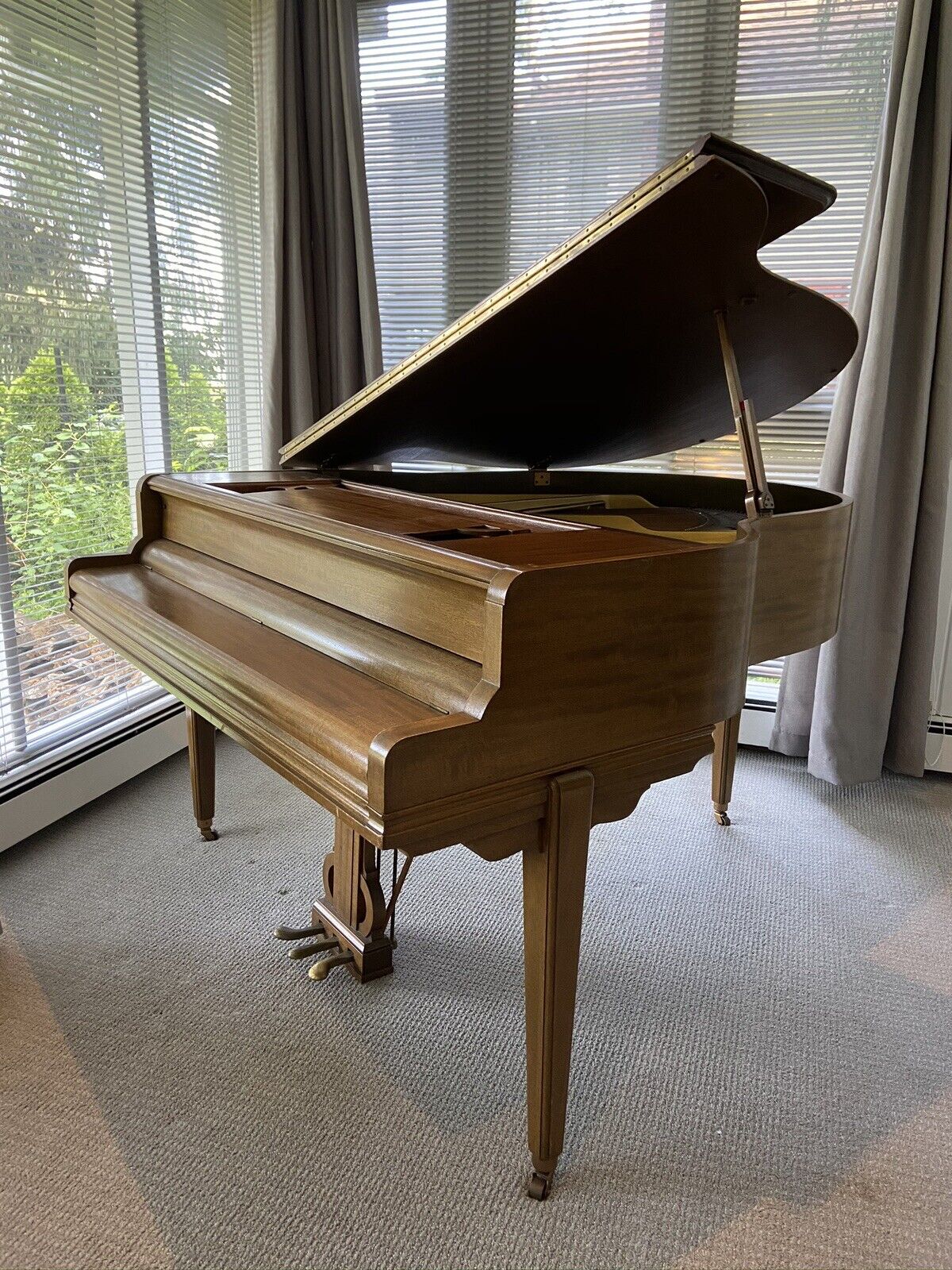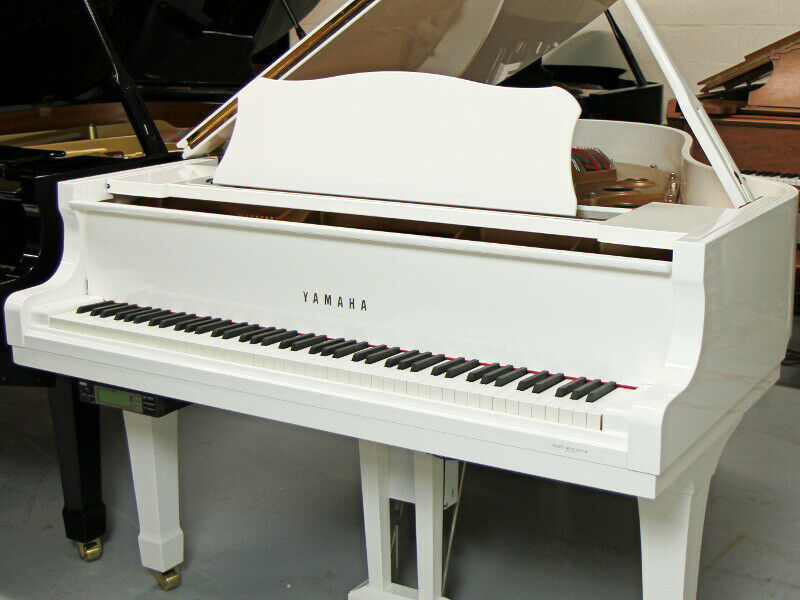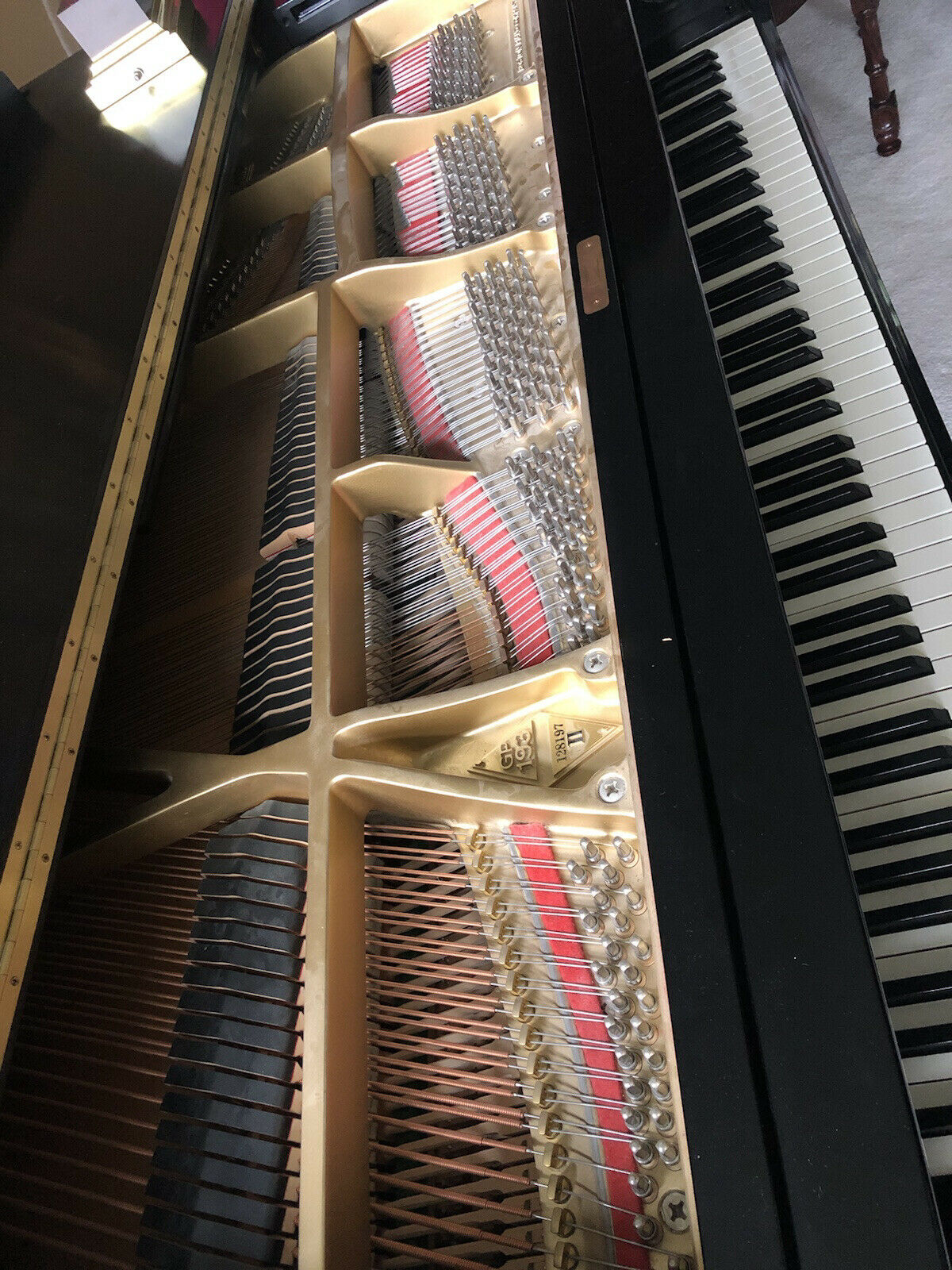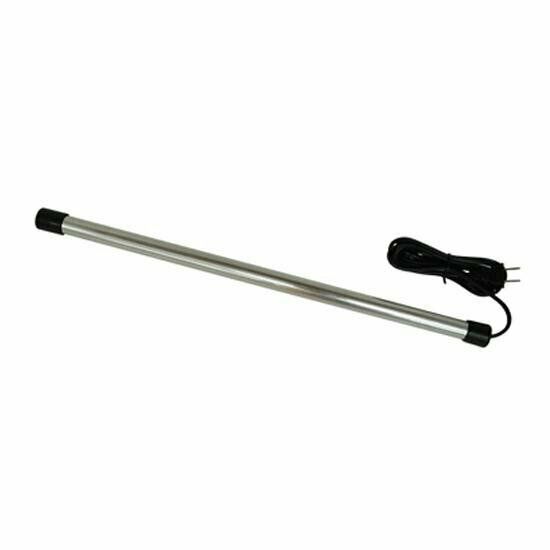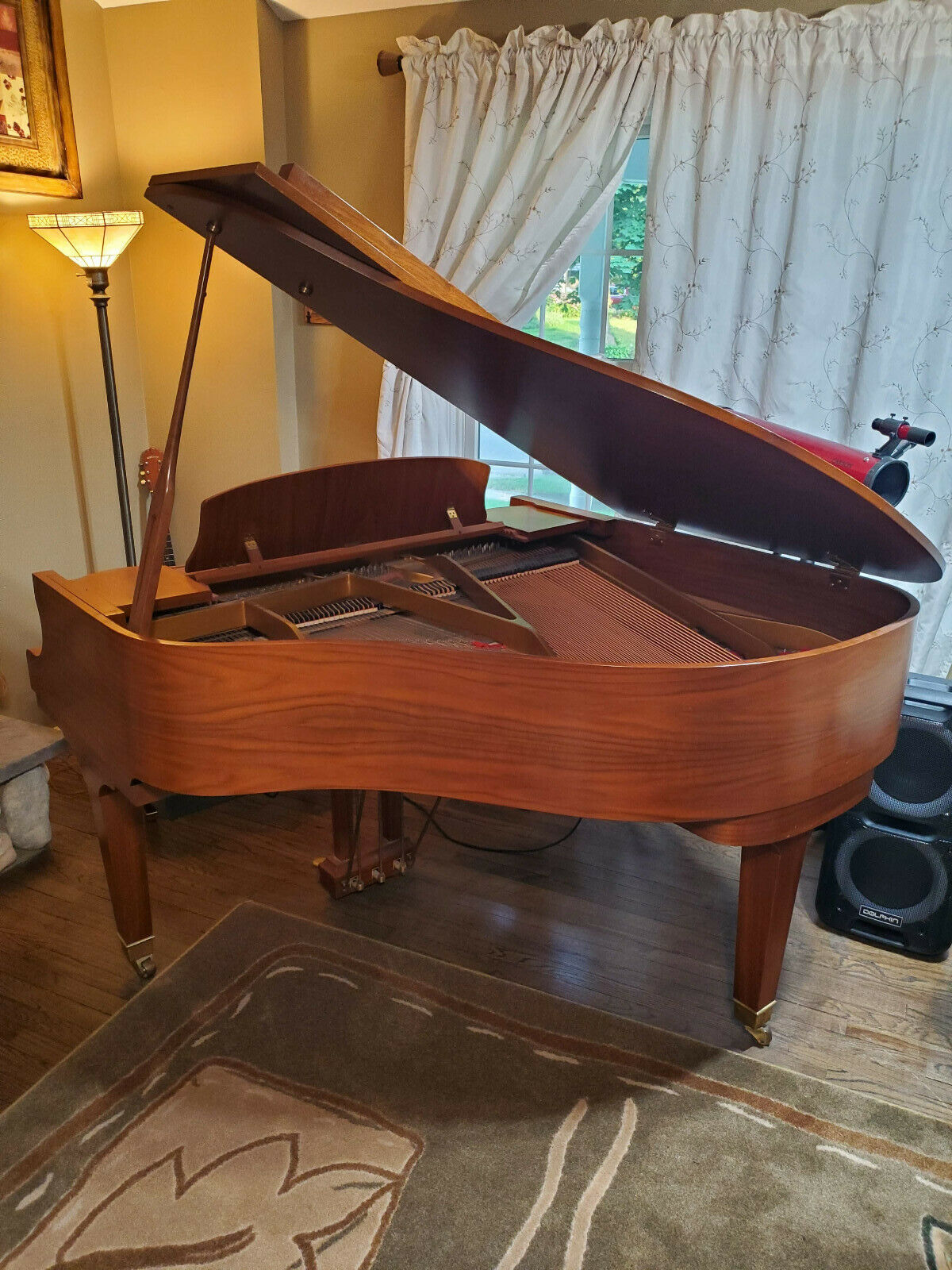-40%
piano
$ 4224
- Description
- Size Guide
Description
Appraiser's Report:Market Value: ,968.00 US dollars (What does market value mean?)
Name of Recipient: Ann L. Schiffers
Manufacturer's Name: Mason & Hamlin Piano Company - Boston, MA
Date of Manufacturer: 1948
Piano Style: Symmetrical Grand
Country of Origin: Boston, MA
Serial #: 55168
Finish: Mahogany
Dimensions: (5')
Condition: Excellent Condition - Refinished - Tuned Regularly
Client Notes: Its a beautiful piano with a very deep, rich sound
Established in 1854 by Henry Mason and Emmons Hamlin in Boston, MA. This company manufactured reed organs & harmoniums, before they started building pianos around 1881. Taken over by Aeolian-American Piano Company East Rochester, New York in the 1930’s. The factory closed 7-22-82. Falcone Piano Company owned the Mason & Hamlin name in 1989 when it was taken over by Bernard Greer, who changed the company to Mason Hamlin Corp. Located at, 35 Duncan St., Haverhill, MA. 01830. In April 1996 Kert and Gary Burgett, owners of Music Systems Research bought the assets of the company and announced plans to continue production of Mason & Hamlin, Knabe and Sohmer lines
Old Mason & Hamlin Grands are often considered the equals of old Steinways. Especially prized models, such as the model A (5'8"). For a couple of years around the turn of the century, Mason & Hamlin also made pianos known as "screw stringers." These had an usual tuning mechanism using machine screws instead of tuning pins. Although this mechanism required different tuning tools and techniques, it worked extremely well. Many of these old screw stringers, both grands and uprights, are still around some in good condition. The only drawback to buying a screwstringer is that the parts for the tuning mechanism are obsolete and hard to obtain, and some of the parts, if broken, may be difficult even for a machinist to duplicate.
No family has contributed more to the progress of music in America than the Masons of Massachusetts and New York. Their forebears first touched these shores at Plymouth in the company of the Mayflower. During the first half of the 19th century, Professor Lowell Mason of The Boston Academy of Music was recognized as the outstanding musical figure of his day. Through his militant efforts, and the free gift of his time as a patient instructor, the teaching of music in the public school curriculum had its advent in Boston in 1837. To the millions of school children who now enjoy that privilege allover America, he is as much a patron saint as is Horace Mann the father of the common, schools. His name is preserved for posterity, too, as author of some 450 hymn 'tunes not the least of which is "Nearer - My God to Thee." This genius for music flamed anew in his two sons who were to give it expression in vastly different ways. Both acquired what musical training this country then afforded. Then, both continued their studies in Europe. Dr. William Mason was a pupil of the immortal Franz Liszt and returned to impart his knowledge as dean of piano teachers in New York City for many years.
